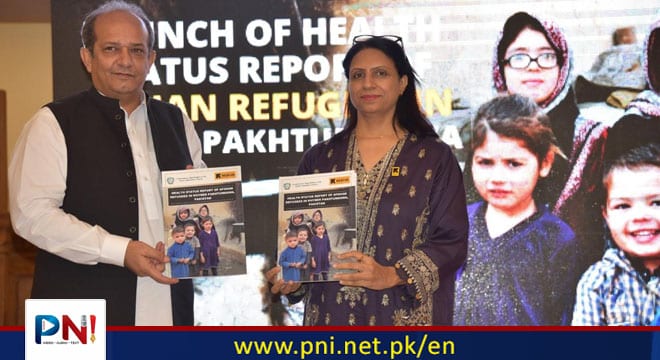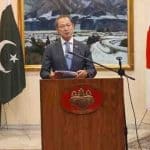Islamabad, June 10: The Chief Commissionerate for Afghan Refugees in Pakistan (CCAR), in partnership with International Rescue Committee (IRC), unveiled the “Health Status Report for Afghan Refugees” that provides a comprehensive overview of the current health landscape confronting Afghan refugees residing in Khyber Pakhtunkhwa.
Muhammad Abbas Khan (Chief Commissioner for Afghan Refugees) noted that amidst the challenges of displacement, the issue of healthcare for Afghan refugees in Pakistan emerges as a critical concern, demanding urgent attention and action. He observed that the report highlights the strain on Pakistan’s healthcare system, exacerbated by the influx of Afghan refugees, and the imperative need of aligning interventions with global frameworks such as the UN Global Compact on Refugees. He further stated that this study has laid foundations to conduct a national study of health status of refugees residing in Pakistan.
On behalf of CCAR he pledged to work collaboratively with all stakeholders for implementing actionable recommendations of strengthening community-level healthcare interventions to advocating for policy changes at the highest levels.
Dr Fayaz Ahmad, eminent public health expert and lead author of the report presented the scope, key findings, and salient recommendations of the report. The report highlights the multifaceted challenges faced by Afghan refugees, ranging from access to healthcare services to socio-economic determinants of health.
The findings indicate that the public sector PHC level facilities (BHUs and RHCs) catering for the needs of refugee populations are working under severe resource constraints and struggle to cope with this additional workload. These facilities require additional support to extend uninterrupted services for both host and refugee communities.
At the policy level there is a dire need to explore feasible options for the extension of Sehat Saulat program or a similar insurance package for Afghan Refugees. Further advocate with relevant stakeholders for the inclusion of refugees in the district and facility budgeting and planning exercises. Lastly, working closely with HMIS unit to ensure that the routine data collected through DHIS can be segregated by the nationality of the clients.
This session was followed by questions and feedback from the representatives of ECHO, UNHCR, UN-IOM, PRM, GIZ, and other organizations that have mandate of programming with Afghan refugees in Pakistan.
Shabnam Baloch, Country Director IRC-Pakistan, in her closing remarks emphasized the need to reimagine our approach to healthcare in the face of climate-related challenges. She noted that the findings of the report underscore the urgent need for contextualized interventions to address the multifaceted health needs of Afghan refugees. From access barriers to financial constraints, the report highlights critical areas requiring immediate attention and action. Notably, it emphasizes the pivotal role of community-level healthcare interventions, advocating for the establishment of a community-based health networks within refugee settlements to benefit both Afghan refugees and host communities.
Follow the PNI Facebook page for the latest news and updates.









